Hernias don’t go away on their own, but they don’t always require surgery either
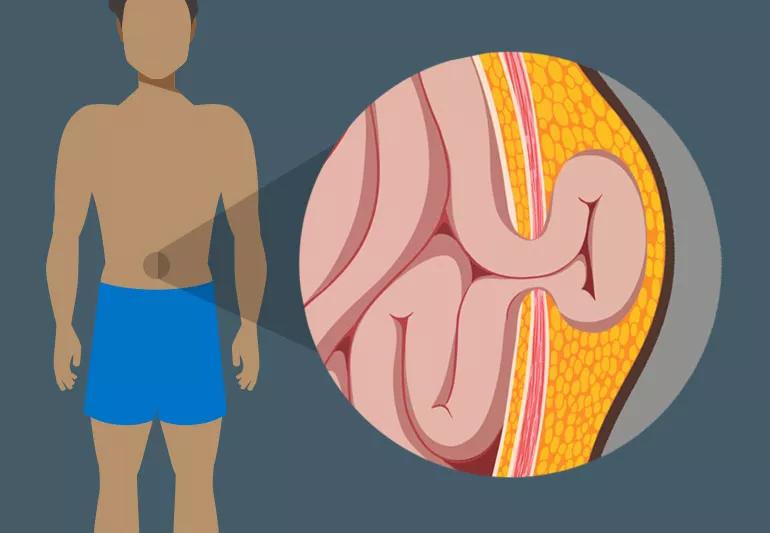
It can be a pretty strange experience, getting a hernia. Maybe you slide into home base and pop! Or you wake up and notice a bulge that definitely wasn’t there yesterday. Perhaps you cough really hard and when you look down, it looks like your belly button collapsed! Or maybe it doesn’t look like anything’s wrong at all, but all of the sudden, getting in and out of the car always hurts … for no apparent reason. What on earth is going on?
Advertisement
Cleveland Clinic is a non-profit academic medical center. Advertising on our site helps support our mission. We do not endorse non-Cleveland Clinic products or services. Policy
A hernia is essentially a hole in your abdominal wall that allows something (intestine or fat) to stick out that doesn’t normally stick out. The name assigned to the bulge changes based on the location:
Hernias feel even weirder than they look.
Most people describe either feeling a bulge or something “sticking out” that doesn’t belong. General surgeon Ajita Prabhu, MD, says that some of her patients have even creatively described it as carrying an “alien baby”!
You might be wondering if those alien babies ever “go home” on their own. We turned to Dr. Prabhu for the answer. She explains the different treatment options (temporary and permanent) to speak with your provider about and the complications both you and your doctor should be on the lookout for.
Unfortunately, self-healing hernias aren’t a thing, with one exception: Some umbilical hernias in babies.
Many hernias eventually require surgery. That said, there are many different surgical approaches to repairing a hernia. For example, it’s increasingly common to have laparoscopic surgery, and you can even get robotic surgery in some cases. While it varies based on the complexity of the situation, many hernia repair procedures are minimally invasive. For most people, that means small incisions, limited post-op pain and a quick recovery.
Advertisement
Hernias tend to grow or worsen with time, so it’s possible that, even if you don’t need surgery now, you’ll need it eventually.
But. (There’s always a but.)
“Not everyone who has a hernia has symptoms. And not every hernia requires repair,” Dr. Prabhu notes. “Some small hernias don’t need treatment if they’re not bothering you.”
Of course, it’s still a good idea to see a healthcare provider as soon as you discover a hernia. Many do require treatment and you open yourself up to risk of complications if you just ignore it.
Nonsurgical treatments can’t eliminate hernias, but Dr. Prabhu says they can reduce symptoms and may even prevent additional damage. Here are some commonly suggested lifestyle changes your provider may encourage you to make following a hernia diagnosis:
Let’s say you can’t get in to see your provider until the end of the week. Or you have a surgery scheduled, but it’s still a month out. If you’re experiencing any discomfort as a result of your hernia, there are things you can do. Dr. Prabhu suggests you:
Just remember, these home remedies aren’t a substitute for hernia repair. They’re just a way to minimize symptoms and prevent the hernia from getting worse.
According to Dr. Prabhu, one of the common questions patients have is, “What would happen if I didn’t get my hernia fixed?”
She explains that the biggest concern is that a loop of intestine or some fat could end up getting stuck in the opening. That’s called hernia incarceration and it can be very painful. It can also cause other complications, like bowel obstructions.
The worst possible complication would be the loop of intestine losing its blood supply. That’s a catastrophic and potentially life-threating complication called strangulation. It can cause tissue death (gangrene or necrosis).
Advertisement
The words “strangulation” and “incarceration” don’t evoke the happiest of images — and there’s a lot of fear-inducing information online about both hernia incarceration and strangulation. But Dr. Prabhu doesn’t think it’s something you should lose sleep over unless you’re in pain.
“The reality is that if you can easily push whatever is sticking out back in — and there’s no pain — then it’s OK to simply schedule an elective surgery to fix it whenever your life’s schedule permits,” she says.
Just don’t put it off too long. “Early repair may help to avoid a bigger, riskier operation in the long run,” she adds.
It’s important to visit a healthcare provider any time you think you have a hernia. They’ll be able to determine if you have a hernia, the type you have and the best ways to manage or treat your specific condition.
If you’ve been diagnosed with a hernia already, the following symptoms are signs that you need to get medical attention immediately:
Hernias are a common occurrence. And they don’t go away on their own. The lone exception to that rule is umbilical hernias in babies.
Advertisement
Some hernias start small and stay that way, never requiring any kind of surgical intervention, but that’s not the case every time.
If you suspect you have a hernia, you should see a healthcare provider. They can determine the type and severity and give you a timeline for repair (if needed).
An incarcerated or strangulated hernia is a life-threatening emergency. If you’re experiencing symptoms, you need to get immediate medical assistance.
Advertisement
Learn more about our editorial process.
Advertisement

At-home treatments and lifestyle changes may help ease the symptoms and improve the appearance of varicose veins — but they aren’t a cure

Regular exercise, an iron-rich diet, adequate sleep and bedtime routines that include a warm bath or massage may help with your kid’s RLS
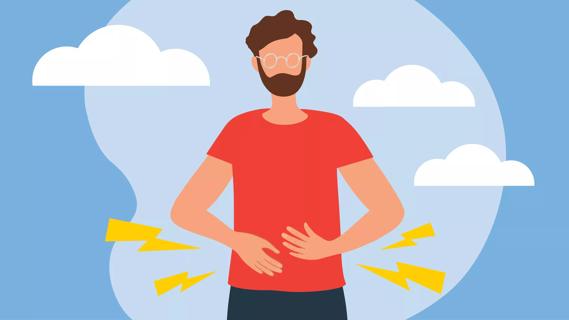
Depending on the type of hernia, complications like pain and infection may arise in the months and years following treatment
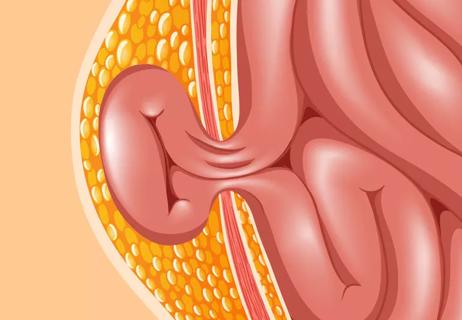
We can’t predict who’ll develop a hernia, but the benefits of being active far outweigh the risk

Safe to wear for most people, compression socks promote better blood circulation in your legs
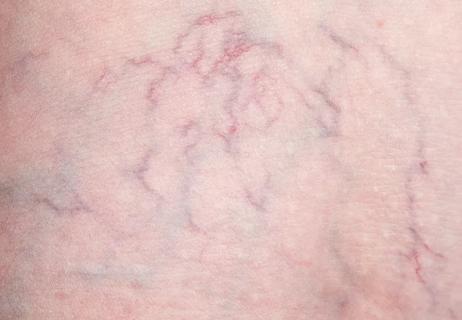
Unlike varicose veins, spider veins don't necessarily indicate poor circulation

Cardio can reduce the appearance of varicose veins, but only temporarily
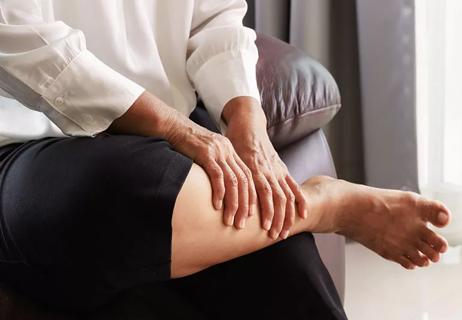
It could be your feet need a rest, but swollen legs may also be a sign of a serious condition

Wearing a scarf, adjusting your outdoor activities and following your asthma treatment plan can help limit breathing problems

Your diet in the weeks, days and hours ahead of your race can power you to the finish line

When someone guilt trips you, they’re using emotionally manipulative behavior to try to get you to act a certain way